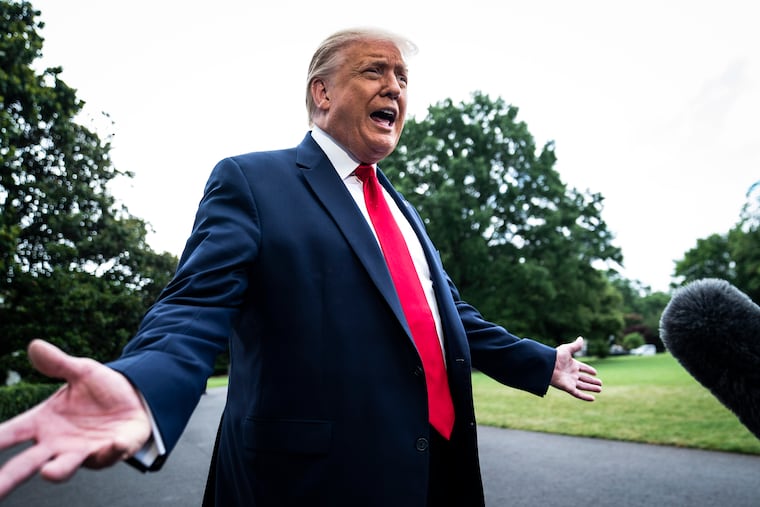What if past crises had evoked leadership like we have today for COVID-19? | Expert Opinion
The spread of COVID-19, one of the greatest crises in our history, has been met with a national leadership style unlike any we have seen before. What if our country’s past leaders had followed that approach?

It’s always tempting to look back and imagine what-ifs. Had our nation’s leaders acted differently in times of crises past, where might we be today?
The spread of COVID-19, one of the greatest crises in our history, has been met with a national leadership style unlike any we have seen before. What if our country’s past leaders had followed that approach? Instead of the words we remember, might the declarations from past crises have sounded something like these pronouncements by President Donald Trump (some slightly paraphrased):
December 1941, President Franklin Roosevelt addressed a joint session of Congress the day after the attack on Pearl Harbor, calling it “a day that will live in infamy.” Might we remember instead a declaration that “We have it totally under control. It’s one group of planes. We have it under control. It’s going to be just fine.” Might we also remember being reminded about a month later, “I said they were going away – and they are going away.”
October 1962, President John F. Kennedy addressed the nation after Soviet missiles were discovered in Cuba and declared an “unswerving” objective “to secure their withdrawal or elimination from the Western Hemisphere.” Following today’s example, might he instead have said, “by April or during the month of April, the heat, generally speaking, will make them go away.” And might he have added in a later statement, “They’re going to disappear. One day, it’s like a miracle, they will disappear.”
September 2001, President George W. Bush addressed a joint session of Congress in the aftermath of the attacks on September 11 and avowed that “all Americans from every walk of life unite in our resolve for peace and justice.” Might we remember these words instead, “We are in contact with everyone and all relevant countries. Our officials have been working hard and very smart. Stock Market starting to look very good to me!”
January 2009, at his inauguration in the middle of a major economic crisis, President Barak Obama affirmed that “we are made for this moment, and we will seize it – so long as we seize it together.” Might his strategy to implement his vision have been, “It’s going to be up to the governors. We’re going to work with them, we’re going to help them, but it’s going to be up to the governors.”
And back on November 1863, President Abraham Lincoln, speaking at the dedication of a cemetery at Gettysburg, Pennsylvania to honor the sacrifice of soldiers in one of bloodiest battles in American history, foresaw “that government of the people, by the people, for the people, shall not perish from the earth.” Were he speaking in the leadership style of today, might he have added, “The president of the United States has the authority to do what the president has the authority to do, which is very powerful. The president of the United States calls the shots.”
Of course, we can only speculate as to the path of history had past presidents managed crises in the manner we are seeing today. All we can say for sure is that they acted far differently, and we know the results.
We also know how the COVID-19 crisis is being managed by the President today. And when we look at the numbers of cases and deaths in the United States compared to other developed countries, we know the results so far of that manner of leadership, as well.
Robert I. Field holds a joint appointment as a professor of law at the Kline School of Law and a professor of health management and policy at the Dornsife School of Public Health at Drexel University.